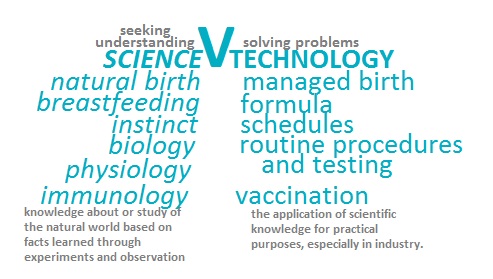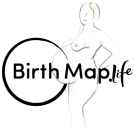There once was a kid who loved Science
And grew up to create an appliance*
it’s science he said
nature is ‘dead’
And to trust nature is medical defiance
*This ‘appliance’ could be, for example, the constant monitoring equipment used in labour, very useful when indicated but not always necessary or beneficial. And it is technology, not science.

However, if there is no problem, there is nothing to sell. Marketing is about highlighting (or indeed inventing) a problem, then selling the solution.
Science Communication was about helping scientists to communicate with the public, it was about public speaking skills, about avoiding jargon. It was not about ‘dumbing it down’, but rather putting it into plain language, based on your target audience. It was about making science fun, and accessible. Somewhere along the line, sci comm became a profession. Scientists stick to science, leaving the public communications to the marketing department. Rebranding of ‘PR’ into ‘Science Communication’ is thinly veiled marketing.
Many of these jobs are not about creating a love of science, or sharing awesome nature-facts, or the ‘wonder of science’. These jobs are about promoting a science-based technology. They are selling a solution, often for a problem invented or created by the tech-focused, insurance centred modern world. Many of these jobs focus on social media.
You may wonder why I am so cynical on this. I was there, at the beginning, when Sci Comm (the discipline) first emerged. As an undergrad Science student I did sci com 101, it was fun. It was focused on public speaking skills and plain speaking. These were invaluable skills, as upon graduating it became apparent just how terrible the average scientist is at public speaking. Public Speaking, including speaking at conferences to audiences that are familiar with your field, was woeful. Common themes: Not keeping to time, trying to tell too much, slides unreadable, unpracticed and frankly boring.
The more grads who were exposed to Sci Comm, the better these conferences became. It was a simple thing, but very effective.
Soon after completing my degree, I was at the crossroads of my academic career: do I follow my biological clock or do a PhD. Science isn’t exactly mother-friendly (my field was marine biology, so months away on field work was at loggerheads with the way I viewed mothering). And without a PhD, you aren’t really a scientist. So I looked to Sci Comm. I completed my masters, with a thesis entitled ‘Science with Personality’. It was very much based on the origins of sci comm…the effective communication of scientists with potential scientists, fostering an awareness of what science involves and why scientists are drawn to it. (you can read it here). I presented my work at a major Sci Comm conference, where a divergence became very apparent.
The keynote speaker raved on about how our job was to convince the public to trust science…effectively to unquestionably let ‘science’ think for them. As I listened, I felt that what he was saying was that Sci Comm was not about understanding, but about coercion. That ‘science’ was a propaganda tool for promoting new technologies. What seemed apparent to me was that what was once Science Communication was now ‘technology promotion’…the PR influence and the need to get a job had evolved a new species of Sci Comm. It looked the same, occupied the same niche, but had developed a forked tongue.
The nature of the forked, and now dominant, species is that they convince the public that they are doing good and genuine work. To trust, and believe, in The Science. The thing about Science, however, is that belief does not enter into it.

I have written about the implications of this in The trouble with consent, that creating a power imbalance (us vs them) leads to coerciveness and obligatory agreeance. I have also spoken about the ‘trust me’ nature of expertism. On the maternity front, perhaps you’d like to know How to have a Scientific Birth.
Just as with any ‘expert’ or information source, science-based ones require you to ask some questions to determine for yourself what is right for you. When ‘consent’ is required, there is more than one possible conclusion. Differing circumstances means that different interpretations of the ‘evidence’ are required. What worried me about the keynote speech at the sci comm conference was the conviction that there was only one conclusion, that which was determined by ‘science’. And ‘Science’ was just a buzzword to cover the propaganda or marketing tactics of your employer. The New (forked) Sci Comm seemed to be about dictating providing answers, not encouraging questions.
I use my masters for good, as The Birth Cartographer, and am now pursuing a PhD in this field.
